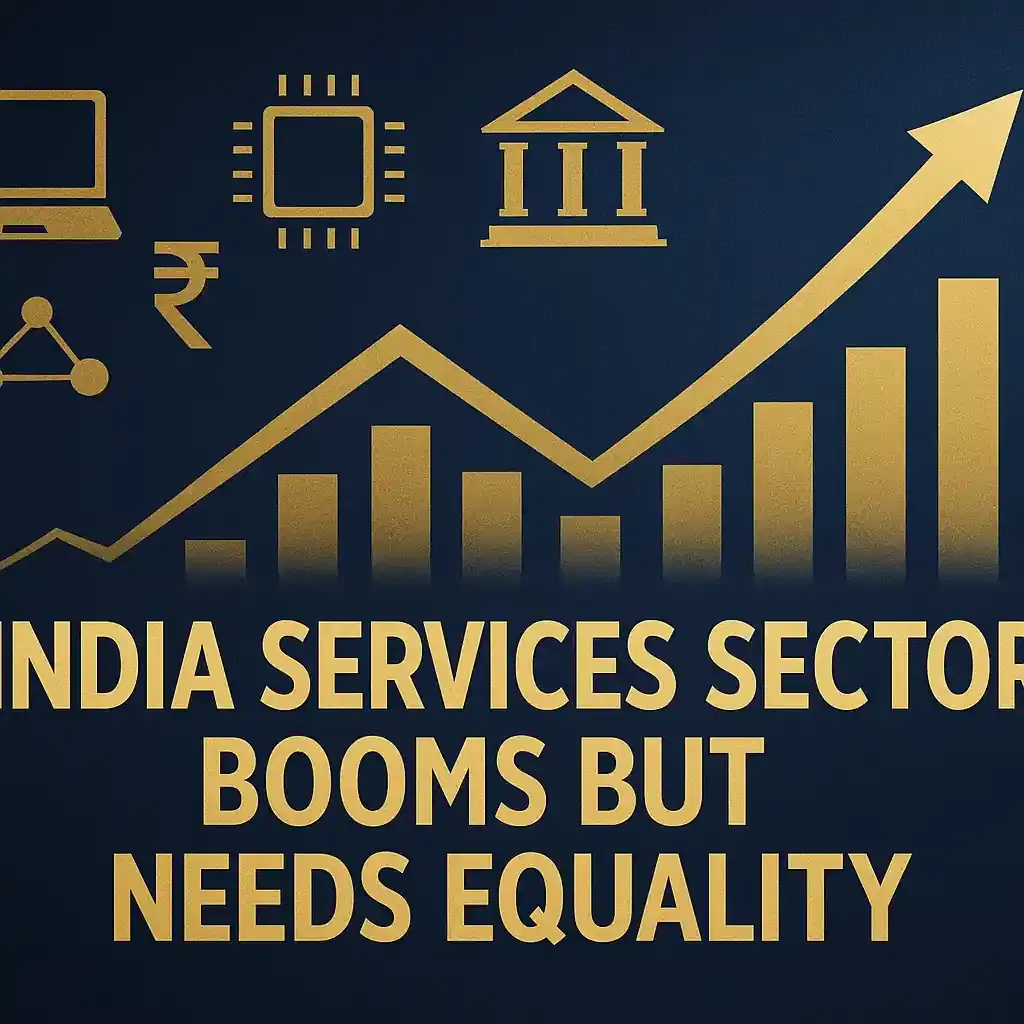NITI Aayog Report: India's Services Sector Drives Growth, Creates Jobs, But Quality and Equality Gaps Remain
Economy
|
28th October 2025, 9:23 AM

▶
Short Description :
Detailed Coverage :
A recent report by NITI Aayog underscores the vital role of India's services sector as the nation's strongest engine of economic growth. The sector contributes a substantial 55% to India's Gross Value Added (GVA) and provides employment to nearly 188 million people, representing 30% of the total workforce. The study, covering 2011-2024, shows an acceleration in job creation, with 40 million new jobs added in the last six years. The employment elasticity, a measure of how job growth responds to economic growth, has significantly increased from 0.35 pre-pandemic to 0.63 post-pandemic, indicating services expansion now translates more effectively into employment.
However, the report flags critical concerns regarding the quality of employment. A large portion of workers are still in informal conditions, lacking job security, predictable earnings, and social protection. A growing divide exists within the sector: modern services like IT and finance employ around 25 million with better prospects, while traditional services like retail and hospitality employ over 155 million, often with lower wages and productivity. Significant regional disparities persist, with southern and western states leading in high-value services, and smaller states lagging. Gender inequality is also stark, with rural women earning less than half of men and urban women earning about 84% of male incomes.
NITI Aayog proposes a focused strategy for each state, emphasizing increased formal employment, extending social protection to gig and informal workers, and skilling women and rural youth for sectors like healthcare, digital services, and green tourism. It also recommends developing service clusters outside major cities and better integrating services with manufacturing. The ultimate goal, as India aims to be a developed nation by 2047, is to ensure the services sector's next growth phase prioritizes better work conditions, fairer wages, and broader inclusion.
Impact This news has a significant impact on the Indian stock market and economy. The sustained growth and increasing job creation in the services sector are positive indicators for economic expansion, consumer spending, and investor confidence. Companies within the IT, financial services, retail, hospitality, and healthcare sectors may see varying impacts based on their positioning within modern vs. traditional services and their strategies for formalization and inclusion. Addressing the quality and equality gaps could lead to more robust and sustainable economic development. Rating: 8/10
Difficult Terms Gross Value Added (GVA): A measure of the value of goods and services produced in an economy, minus the cost of intermediate goods and services used in their production. It is a key indicator of economic growth. Employment Elasticity: A measure that quantifies the responsiveness of employment growth to economic growth. A higher elasticity means that a given percentage increase in GDP leads to a larger percentage increase in employment. Informal Conditions: Employment characterized by lack of formal contracts, limited job security, low wages, poor working conditions, and little or no access to social security benefits like health insurance or pensions. Social Protection: Measures taken to reduce poverty and vulnerability by ensuring that individuals and families can meet an adequate income throughout their lives, especially when faced with hazards like unemployment, old age, sickness, or maternity. Gig Roles: Short-term, flexible jobs, often mediated by digital platforms, where workers are typically considered independent contractors rather than employees. Service Clusters: Geographic concentrations of interconnected companies and institutions operating in a particular service industry, which benefit from agglomeration economies and collaboration.